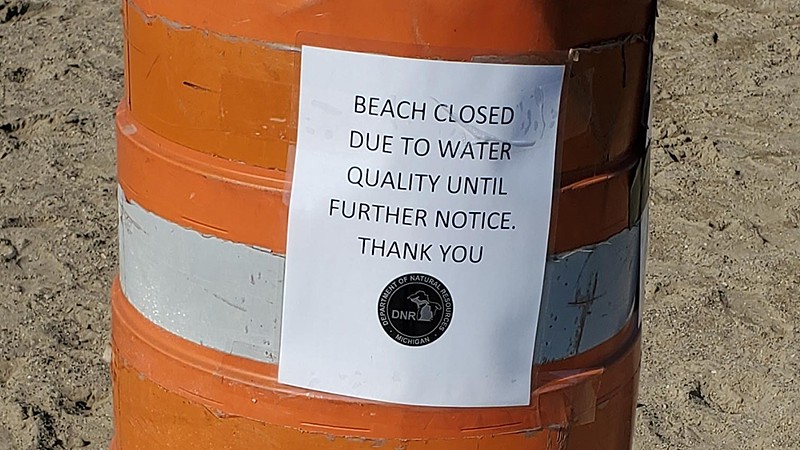
Detroit Health Department
Detroit's Belle Isle beach was closed for a week and a half in August due to E. coli levels.
On Thursday, Aug. 19, during the dog days of Michigan's short summer, Detroit's Belle Isle beach was closed for swimming due to elevated levels of E. coli detected in the water, prompting officials to post signs warning beachgoers not to swim.
On Monday, Aug. 30, the Detroit Health Dept. said that the E. coli levels, which is found in fecal matter, had dropped to safe levels and the beach was reopened for swimmers.
Gabrielle Grant, the digital communications coordinator at the Detroit Health Dept., says the elevated levels were caused by the massive rainfall and floods in the Detroit area, causing sewage to flow into the Detroit River.
"It's mostly common when there are heavy rain events, and [that's] what we've been having with the flooding and that situation, but usually when that happens the contamination fades pretty quickly," Grant tells Metro Times. "They also have had issues with the geese at the beach and boats dumping septic tanks in the past as well."
Many parts of the world, including the Detroit area, saw historic flooding this summer. Experts say that human activity is causing global warming, which is leading to more powerful storms.
BELLE ISLE BEACH OPEN: Results from new test samples were acceptable enough to open the beach. https://t.co/ssPrTtLGM7
— Detroit Health Department (@DetHealth) August 30, 2021
Stay connected with Detroit Metro Times. Subscribe to our newsletters, and follow us on Google News, Apple News, Twitter, Facebook, Instagram, or Reddit.

